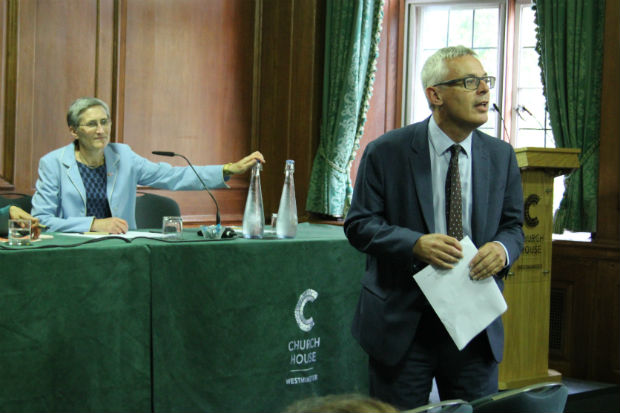
Today is National Coming Out Day, an annual LGBT awareness day, which started in the USA in 1988 and is now marked in a number of countries around the world, to promote positivity and celebrate coming out. Many LGB&TI people say that coming out is a way of speaking their truth and affirming their identity. Being out can be a way of providing role models, and of breaking through the cloak of invisibility that many feel has shrouded LGB&TI people for so long.
In my last blog, I wrote of my commitment to the Civil Service becoming the most inclusive employer in the UK. We are doing a lot of work on how to measure inclusion and how to identify actions relating to inclusion, so we know that individuals feel included when they have a sense of belonging, can be their authentic selves, and have a voice in their organisation. Coming out, for LGB&TI people, is key to being able to bring their authentic selves to work; but we know that it can be a difficult process, made easier only when someone can be confident that they are in a safe and supportive environment.
Coming out is not, however, a one-off process. Heterosexual people come out as heterosexual many times a day – when people talk about their home circumstances, their relationships, what they did at the weekend or on holiday. If you think about it, there are many ways in which a heterosexual person tells those around them that they are heterosexual, without thinking about it. Unfortunately, LGB&TI people still often experience hostility as a result of being LGB or TI, which means having those casual conversations often involves a rapid risk assessment as to whether they feel safe to give information about their sexual orientation and/or gender identity and/or sex. And there will be times and situations when they do not feel safe, and feel that the emotional risk is not worth taking – either that day, or with those people, or in that situation.
On 25 September, Clare Moriarty (Civil Service Faith & Belief Champion) and I hosted an event looking at the intersection between sexual orientation and faith & belief, where we heard some powerful stories from three inspiring speakers, including their own coming out stories. They talked about their decisions to speak their truth – to family, friends and communities; about their sexual orientation and their faith as two parts of their identity, and their refusal to give up either aspect of who they are. But they also spoke about the need to look after themselves, and when some situations do not feel safe, the importance of getting out of those situations – and of the importance of having strong allies to support them.
Taking responsibility
To be the most inclusive employer in the UK, we need to ensure that the Civil Service is a safe place, where all LGB&TI people can be their authentic selves. This places a responsibility on those of us who are not LGB, T or I to be strong and supportive allies, and to take responsibility for ensuring that our LGB&TI colleagues feel safe, and are supported to flourish in their own identities. It is not enough simply to leave all things LGB&TI to our LGB&TI colleagues and staff networks.
As Civil Service LGB&TI Champion, I take very seriously my responsibility to do all that I can to ensure that LGB&TI civil servants feel included. I am supported in this role by senior LGB&TI Champions from Civil Service departments and organisations, some of whom are from the LGB&TI communities, and many of whom are allies. We had an extended champions meeting this month, focused on inclusion. It was clear we all share a passion for diversity and inclusion, and for meeting the Civil Service commitment in the Government’s LGBT Action Plan to “role model best practice in establishing working environments that are inclusive for LGBT staff”.
On this National Coming Out Day, let us all celebrate the many identities of civil servants across the country and overseas, and let us renew our efforts to ensure our LGB&TI colleagues feel included, and feel as safe to come out as their heterosexual colleagues do.

1 comment
Comment by Gavin Thomas posted on
As a Straight LGBT+ ally, I have seen a significant change in the attitude towards the LGBT+ community and in particular within the Civil Service.
However, the unacceptable behaviour that we have heard about through the media that some have experienced this year are a clear indiction that like racial equality, there is still more that needs to be done before we can celebrate a truly diverse and inclusive environment. both inside and outside of the working environment.
We also need to appreciate that there are still countries where it is totally unsafe for our UK and Locally Engaged Colleagues to be authentic or come out!
It is important we offer them our support so that they do not feel isolated or alone.